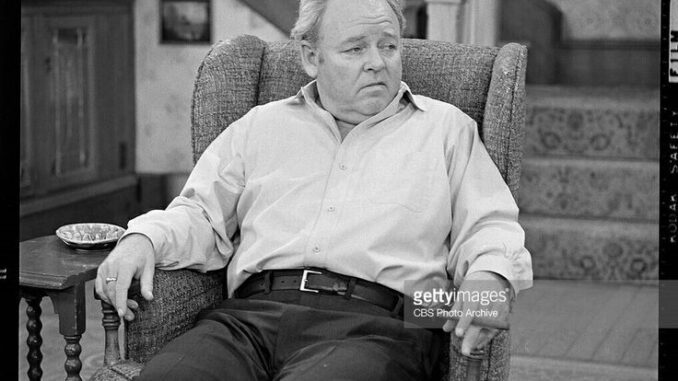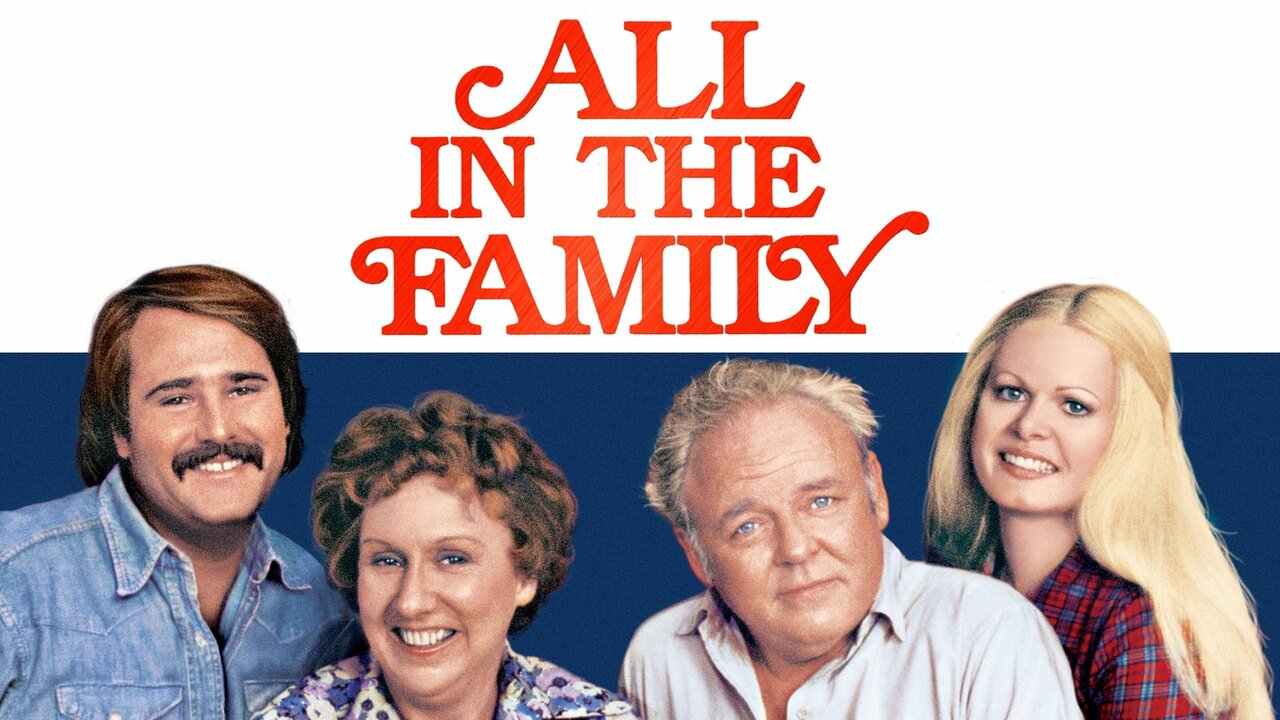
The groundbreaking television show All in the Family, which first aired in 1971, remains a defining milestone in the history of American sitcoms. Its portrayal of family dynamics and contentious political issues through its characters—Archie Bunker (Carroll O’Connor), Edith Bunker (Jean Stapleton), their daughter Gloria (Sally Struthers), and son-in-law Mike Stivic (Rob Reiner)—was revolutionary at the time and continues to have an impact on television today. However, for Sally Struthers, the actress who brought Gloria to life, her journey to becoming one of TV’s most iconic characters was filled with struggles, personal challenges, and perseverance. Born in Portland, Oregon, on July 28, 1947, Struthers had a tumultuous early life. Her parents separated when she was in the third grade, and although they didn’t divorce until she was 17, Struthers never had the idealized childhood she had once hoped for. During her youth, Struthers developed a coping mechanism for her father’s infrequent visits, pretending to be ill so that he, a doctor, would come to visit. This experience, she later believed, helped her hone her acting skills, particularly her ability to convincingly embody different roles.
Though she initially aspired to follow in her father’s footsteps and pursue a career in medicine, Struthers eventually realized that her passion lay elsewhere. In high school, she turned to art, enrolling in every available art class and even winning a scholarship for commercial art. However, she would soon realize that her future wasn’t in creating visual art either. By her late teens, Struthers had found a new direction and applied to the Pasadena Playhouse College of Theatre Arts, where she earned a scholarship and attended for two years. There, she learned a wide range of skills necessary for a professional acting career, from makeup and fencing to dialects and set design. Despite this, Struthers’ early years in Hollywood were anything but glamorous. For nearly three years, she struggled to find stable work, auditioning for countless roles, taking on a variety of odd jobs, and facing repeated rejections. At one point, she even worked as a waitress, telephone solicitor, and theater worker, cleaning restrooms and selling popcorn to make ends meet.
However, Struthers’ persistence eventually paid off. She had a small role in the 1970 film Five Easy Pieces, which, while brief, helped to put her on the radar of Hollywood casting agents. Soon after, she was signed by Creative Management Associates and began to book roles on television shows like The Smothers Brothers Show and The Tim Conway Hour. Despite the excitement of these new opportunities, none of these projects lasted long. Her breakthrough moment came in 1971 when she voiced the character of Pebbles Flintstone in The Pebbles and Bamm-Bamm Show, a Saturday morning cartoon spin-off of The Flintstones. It was during the production of this show that Struthers auditioned for the role that would define her career—Gloria Stivic, the daughter of Archie and Edith Bunker.
After auditioning with over 100 other actresses, Struthers was notified that she had landed the role of Gloria. The news was met with pure excitement, as Struthers had faced many years of uncertainty in her acting career. At first, the role of Gloria seemed straightforward—she was a young woman, a product of her generation, caught in the tension between her conservative father and her liberal husband. The character was initially written as somewhat one-dimensional, often just agreeing with Mike’s progressive views or responding to Archie’s bigotry with phrases like “Daddy, you should be ashamed of yourself.” However, as the series progressed, Struthers began to feel that there was more depth to be explored in the role of Gloria. She felt the character needed to be more than just a passive participant in the debates between Mike and Archie. This dissatisfaction led Struthers to consider leaving the show, but it also served as the catalyst for a deeper exploration of Gloria’s character.
By the time All in the Family entered its second season in 1972, the writers and producers began to give Gloria more substantial moments of her own, allowing her character to grow beyond her original, limited role. Struthers found herself increasingly involved in more dramatic storylines, addressing issues like rape, abortion, and family dynamics, topics rarely tackled on TV at the time. She was now playing a woman who wasn’t just an extension of her father or her husband but a fully realized individual in her own right. As Struthers reflected years later, the show had given her not only more professional confidence but also a broader personal perspective. She was playing a character who was learning to navigate the complexities of adulthood, marriage, and independence in a time when such portrayals were revolutionary.
Despite her growing satisfaction with the development of Gloria’s character, Struthers, alongside Rob Reiner, chose not to renew her contract in 1978, leading to her departure from the series. However, the legacy of All in the Family was far from over. The show’s spin-off, Archie Bunker’s Place, carried on until 1983, but Struthers had already moved on to new projects. She starred in the short-lived Gloria series, which saw her character as a single mother starting a new life in a small town, away from her former life in California. Although the show was not a major success, it marked an important evolution in Struthers’ portrayal of Gloria, now more independent and self-sufficient than she had ever been before.
Over the years, Struthers would go on to continue her acting career, notably appearing in Broadway productions like The Odd Couple (1985–1986) and taking on a recurring role in 9 to 5 (1986–1988). She also garnered a memorable presence in Gilmore Girls as Babette Dell. Alongside her acting, Struthers devoted significant time to humanitarian work, most notably serving as a spokesperson for the Christian Children’s Fund, where she brought attention to the plight of impoverished children in developing countries. Despite a successful career in front of the camera, Struthers reflected often on her beginnings in Hollywood, acknowledging that the journey was far from easy, but her persistence and passion for her craft ultimately allowed her to achieve lasting success. Whether it was portraying the sweet but outspoken Gloria Stivic, contributing her voice to Pebbles Flintstone, or later roles on the stage and screen, Sally Struthers’ impact on television and the entertainment industry is undeniable.
